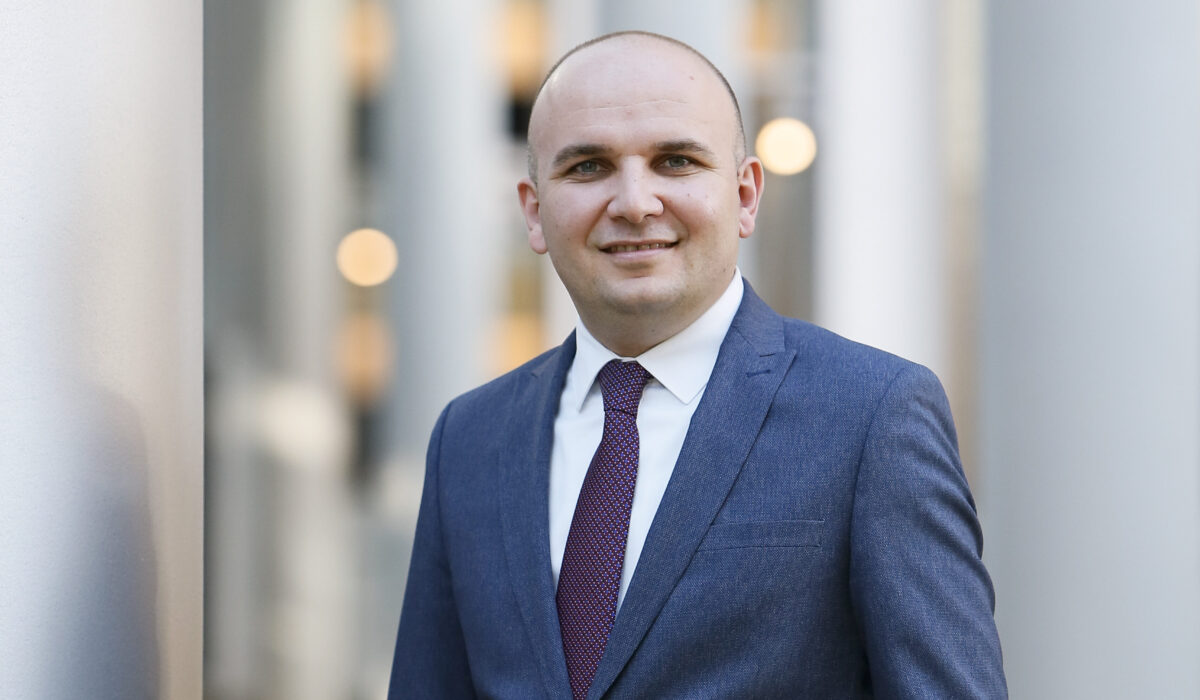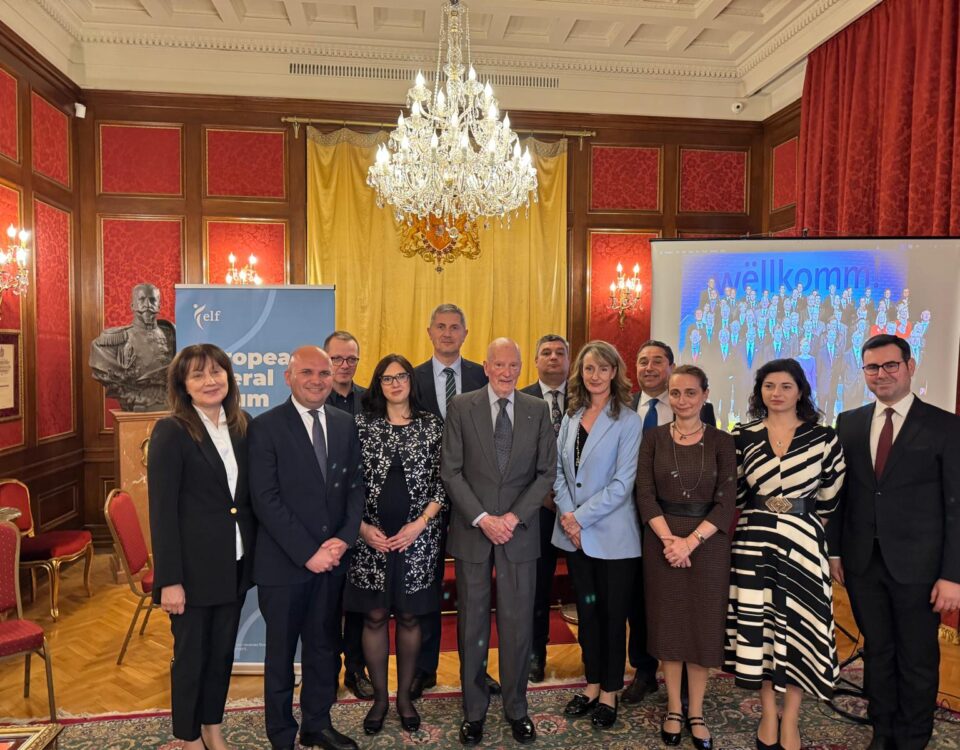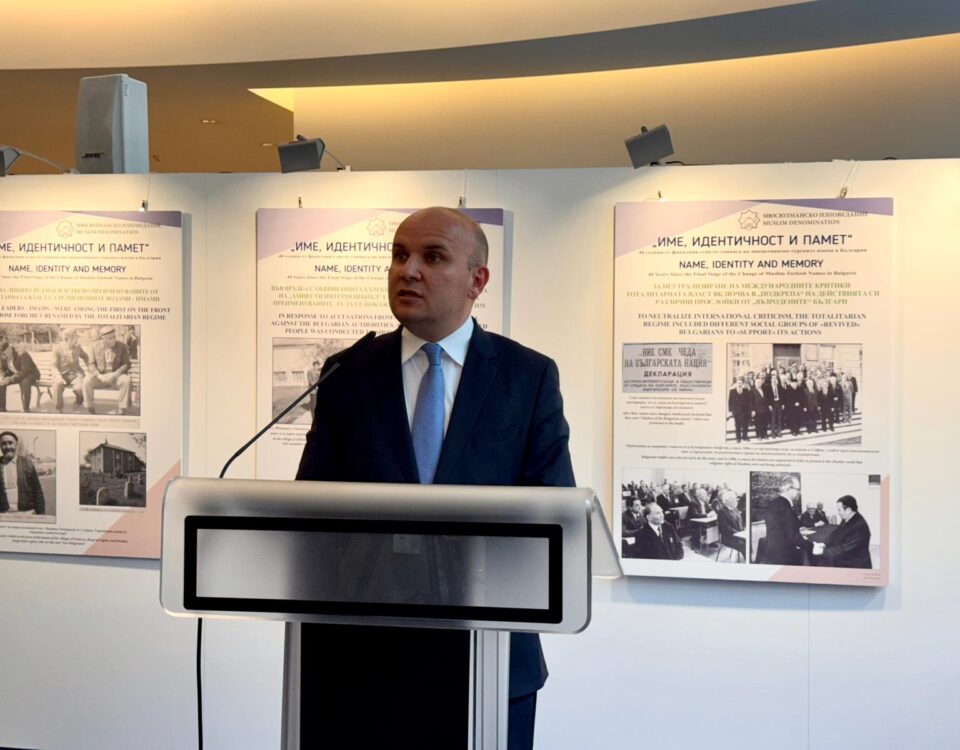
Kyuchyuk to Tusk: Unity is the key to tackling the many challenges facing Europe
September 3, 2021
Ilhan Kyuchyuk: Modern democracies will belong to the citizens
September 12, 2021klix.ba: How do you see the future of the liberal idea in Europe and can it cope with today’s security, humanitarian and health challenges, especially given the growing pressure from right-wing parties across the EU?
Ilhan Kyuchyuk: The European Union today – considering the Coronavirus pandemic, the increasing impacts of climate change and also following the withdrawal of the United Kingdom to name just a few – is facing multiple challenges on many fronts and has not always been able to respond as quickly and as coordinated to such challenges as we would like. But we liberals, firmly believe that we can achieve more by working together than by operating individually, just as the coronavirus pandemic has highlighted very fundamentally. Far right and nationalist parties may wave their national flags and stoke fear but they often don’t have the answers to the biggest challenges we face today and the voters should recognise that.
klix.ba: Josep Borrell recently emphasized the idea of forming the European Union’s armed forces, saying the move was inevitable due to security problems facing the EU. Renew Europe in some way emphasized this idea back in 2017. Do you still think that the formation of the EU armed forces is a necessity and what advantages the formation of a European army would bring?
Ilhan Kyuchyuk: The High Representatives’ comments came in response to the situation in Afghanistan, which was not exactly a success story for the international community. But rather than calling for a “European Army“ he was reflecting more I feel on how the EU and its component countries – many of whom are also members of NATO – can deploy their resources to react in a more coordinated way in such situations so that it can positively influence international relations to defend its interests. Member States and the EU as a whole must assume greater responsibility for its security and liberals support a common EU approach wherever possible to the strategic challenges Europe faces today.
klix.ba: Is the current EU migration policy integrational at all or is it simply the result of a balance between two blocs of states – those who support migration and those who strongly oppose it. In this regard, does the Balkans actually suffer the most and in some way become a dead end of migration?
Ilhan Kyuchyuk: While it is true that the EU’s management of migration does need to become more coherent, and we need a new common approach to migration and a common commitment to integration, member states retain the right to determine volumes of admission for people coming from third countries to seek work so will always be subject to national political debate. We want to see a new approach built on our shared values of solidarity, human rights and respect for the rule of law and will continue to push for this whenever we can.
klix.ba: How do you view the development of the liberal idea in the Balkans, is there room for progress and in which direction, and does the idea you are promoting have the potential to become dominant in this region? How do you view the phenomenon of liberal parties in the Balkans forming coalitions with parties that may not be ideologically based on the same principles. Is that inevitable in the Balkans?
Ilhan Kyuchyuk: There is always room for improvement and we should always strive to promote more progressive and liberal ideas in our policymaking and of course we would like to see even more liberal politicans elected across the region. Electoral coalitions are becoming more and more of a political reality these days due to respective national electoral systems and number of parties on offer for citizens to vote for, which I find to be very healthy in democracy.
I’m very happy that liberal parties across Europe are increasingly important actors in the formation of governments, and not just as the junior partners but leading coalitions and putting liberal values and ideals into practice, just as Edin Forto and Nasa Stranka are doing in Canton Sarajevo.
klix.ba: Few months ago, together with a group of parliamentarians, you sent a letter to Josep Borrell criticizing the European Union’s attitude towards Bosnia and Herzegovina. What do you actually consider the biggest problem in the relations between the EU and BiH, and should Europe change its approach towards BiH, considering that it is evident that this way of negotiations does not deliver adequate results?
Ilhan Kyuchyuk: We do care about Bosnia and Herzegovina and we believe its future belongs to the European Union. Bosnia and Herzegovina citizens have suffered enormously from the ethnic conflict in the 90s and I think it is high time for the country to make a big step forward its European path and become very soon a candidate country. But to succeed in this goal, we want to see concrete reforms which are inclusive and with the participation of the entire population. The European Union have been always defending the principals of plurality, inclusiveness and openness of political processes. This passes through a functioning civic democracy and overcoming the painful past of Bosnia and Herzegovina. In this sense, our mission is to have a leading and active role in facilitating and supporting the implementation of the 14 key priorities, offering the country a clear path towards the prospect of achieving the candidate status.
klix.ba: In the last few months, we have witnessed retrograde policies aimed at the disintegration of BiH. These policies have the support of both the countries of the region and certain parts of the EU. Is the intensification of retrograde policies a sign that at the moment the part of the European Union that supports such actions has a much more proactive approach compared to the one that explicitly opposes the division of BiH?
Ilhan Kyuchyuk: Recently in June, I, along with fellow members of the European Parliament representing all European Union countries, adopted by very large majority a report expressing the EU’s strong support for the sovereignty, territorial integrity and independence of Bosnia and Herzegovina. In this report we also recalled that the path towards EU membership depends on sustainable peace, stability and meaningful reconciliation that underpins the democratic and multicultural character of Bosnia and Herzegovina. We liberals are strong supporters of the country’s EU integration but we recognise there remains much more that needs to be done and reforms that need to be made. This is why we are delighted to associate ourselves with our liberal partners Nasa Stranka as they drive this agenda.
klix.ba: Finally, I am interested in your opining, as well as the opinion of the group in the European Parliament that you represent about the “Open Balkans” initiative, which currently includes Serbia, Northern Macedonia and Albania. In your opinion, is such an initiative a step further from the EU or part of an integration approach?
Ilhan Kyuchyuk: Regional initiatives for further cooperation between the countries are important for the future integration to the EU of these countries. It is also important that these initiatives are in accordance with the EU rules or are coordinated with the European Commission in order to implement early integration measures in the context of the revised methodology of EU accession. However, we saw that some countries expressed their disagreement aloud, while others did not join the “Open Balkan” initiative. For me personally, this initiative could be very meaningful for the region and unleash its full potential if all the countries of the Western Balkans join it.
Тази публикация е достъпна и на следните езици: Bulgarian




